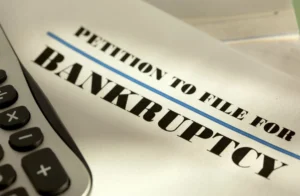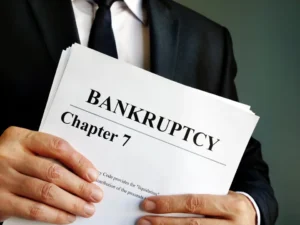When you have a dire financial situation, you may feel all hope is lost. Life in debt can make you feel as though you are drowning. These feelings are difficult to contend with. For many others in this situation, bankruptcy is a potentially viable option.
Bankruptcy can be a lifesaver when you are deeply in debt. Keep in mind the process of bankruptcy is arduous and may seem difficult. There are also some lasting drawbacks you will contend with for years. Bankruptcy will remain on your credit report and impact your credit score for a long time.
For this reason, you must continue to examine your credit report regularly, both during the bankruptcy process as well as afterward. The following are some things you need to know about your credit report during and after bankruptcy.
Why Credit Report Are Important
Your credit report is a comprehensive record of your credit history. The report maintains information about any debt you have for a certain amount of time. As time passes, certain items will automatically fall off the report. Financial experts advise anyone with a credit history to check the report on an annual basis, even those with a healthy financial history.
When you check your credit report, you will learn where you stand with your debt. If you are going through a bankruptcy, you need to keep an eye on your credit report with even more intention. As your debt discharges, the accounts should fall off the report. However, the debt will look different as you move through bankruptcy.
How Debt Appears on a Credit Report
Your accounts will remain on your credit report even when they have no balance left. This happens whether or not you have a bankruptcy. The report will likely have notations as to which debts were a result of a bankruptcy discharge. One important item to check for as you look at your credit report is whether or not the discharges appear.
In some cases, creditors may not report your zero balance after a discharge. This can be due to a number of reasons. The creditor may take longer than others to report to the credit bureaus. Other times, however, the creditor will not report your discharged debt by mistake. The potential for mistakes is one of the primary reasons you should monitor your credit report regularly.
How to Handle Mistakes on a Credit Report
There is the possibility of additional mistakes on a credit report aside from not removing the debt from your record. A creditor may incorrectly discharge your debt. Agencies may not be listed correctly, or the amounts of your debt balance could be wrong. Check the report carefully for inconsistencies or items that do not seem right.
Once you identify any mistakes, you need to contact the credit reporting agency. You will file a dispute against any incorrect information on your report. This may take some time to process, but you will notice an improvement to your credit score once the creditor removes the mistakes.
If you dispute any misinformation and the corrections do not go through, you need to call your bankruptcy attorney. A credit reporting agency that does not remove any verifiably incorrect information from a credit report after you file a dispute is in violation of the law. You then have a right to sue the agency to remove the incorrect information.
Once you get through the bankruptcy process, continue to check your credit report for errors. You never know when something may appear that is incorrect or even fraudulent. If you have any further questions about bankruptcy and how to understand your credit report, please contact us The Madden Law Firm.




